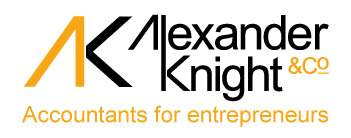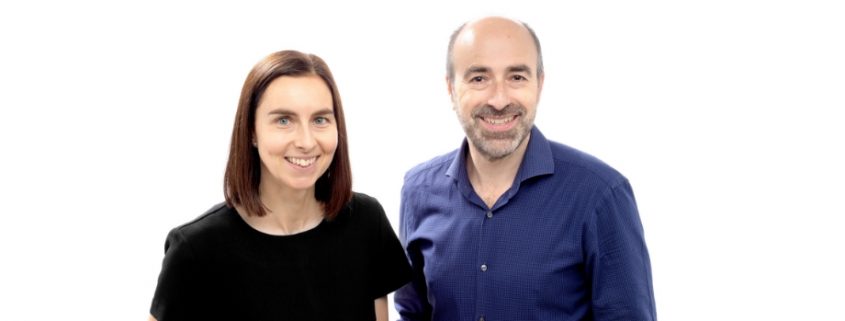Budget 2018
The Chancellor Philip Hammond presented his second Autumn Budget on Monday 29 October 2018. In his speech he stated that ‘austerity is coming to an end – but discipline will remain’. He also promised a ‘double deal dividend’ if the Brexit negotiations are successful but stated that there may be a full-scale Spring Budget in 2019 if not.
Our summary focuses on the tax measures which may affect you, your family and your business.
Main Budget tax proposals
Our summary concentrates on the tax measures which include:
- increases to the personal allowance and basic rate band
- extending off-payroll working to medium/large organisations in the private sector
- a temporary increase to the Annual Investment Allowance
- freezing the VAT registration threshold for a further two years
- changes to Entrepreneurs’ Relief and private residence relief
- measures to tackle the plastic problem.
Previously announced measures include:
- increases in car benefits
- plans for Making Tax Digital for Business
- extending the charge to gains on non-UK residents of non-residential UK property.
Some Budget proposals may be subject to amendment in the 2019 Spring Statement and subsequent Finance Act. You should contact us before taking any action as a result of the contents of this summary.
Personal Tax
The personal allowance
The personal allowance is currently £11,850. The personal allowance for 2019/20 will be £12,500.
Murray Patt says:
|
| There is a reduction in the personal allowance for those with ‘adjusted net income’ over £100,000 and the threshold has remained at this figure since its introduction for the 2010/11 tax year. The reduction is £1 for every £2 of income above £100,000. So for 2018/19 there is no personal allowance where adjusted net income exceeds £123,700. For 2019/20 there will be no personal allowance available where adjusted net income exceeds £125,000. |
The marriage allowance
The marriage allowance permits certain couples, where neither pays tax at more than the basic rate, to transfer 10% of their personal allowance to their spouse or civil partner.
Murray Patt says:
|
| The marriage allowance reduces the recipient’s tax bill by up to £238 a year in 2018/19. The marriage allowance was first introduced for 2015/16 and there are many couples who are entitled to claim but have not yet done so. It is possible to claim for all years back to 2015/16 where the entitlement conditions are met. A recent change to the law allows backdated claims to be made by personal representatives of a deceased transferor spouse or civil partner. |
Tax bands and rates
The basic rate of tax is currently 20%. The band of income taxable at this rate is £34,500 so that the threshold at which the 40% band applies is £46,350 for those who are entitled to the full personal allowance. Additional rate taxpayers pay tax at 45% on their income in excess of £150,000.
The tax on income (other than savings and dividend income) is different for taxpayers who are resident in Scotland from taxpayers resident elsewhere in the UK. The Scottish income tax rates and bands apply to income such as employment income, self-employed trade profits and property income.
In the 2018/19 Scottish Budget, the Finance Secretary for Scotland introduced five income tax rates as shown in the table of rates at the end of this summary. The income tax rates range between 19% and 46%. Scottish taxpayers are entitled to the same personal allowance as individuals in the rest of the UK.
Tax bands and rates 2019/20
The government has announced that for 2019/20 the basic rate band will be increased to £37,500 so that the threshold at which the 40% band applies is £50,000 for those who are entitled to the full personal allowance. The additional rate of tax of 45% remains payable on taxable income above £150,000.
From April 2019, the Welsh Government has the right to vary the rates of income tax payable by Welsh taxpayers. The UK government will reduce each of the three rates of income tax paid by Welsh taxpayers by 10 pence. The Welsh Government has provisionally set the Welsh rate of income tax at 10 pence which will be added to the reduced UK rates. This means the rates of income tax paid by Welsh taxpayers will continue to be the same as those paid by English and Northern Irish taxpayers. The Welsh Government will need to confirm this proposal prior to their final Budget.
The Scottish Government will announce the Scottish income tax rates and bands for 2019/20 in the Draft Budget on 12 December 2018.
Tax on dividends
In 2018/19 the first £2,000 of dividends are chargeable to tax at 0% (the Dividend Allowance). The Dividend Allowance will remain at £2,000 for 2019/20. Dividends received above the allowance are taxed at the following rates:
- 5% for basic rate taxpayers
- 5% for higher rate taxpayers
- 1% for additional rate taxpayers.
Dividends within the allowance still count towards an individual’s basic or higher rate band and so may affect the rate of tax paid on dividends above the Dividend Allowance.
To determine which tax band dividends fall into, dividends are treated as the last type of income to be taxed.
Murray Patt says:
|
| In 2017/18 the Dividend Allowance was £5,000. The reduction in the allowance particularly affects family company director-shareholders who extract monies from the company by means of a small salary and the balance in dividends. The cost of the restriction in the allowance for basic rate taxpayers is £225 increasing to £975 for higher rate taxpayers and £1,143 for additional rate taxpayers. |
Tax on savings income
Savings income is income such as bank and building society interest.
The Savings Allowance, which was first introduced for the 2016/17 tax year, applies to savings income and the available allowance in a tax year depends on the individual’s marginal rate of income tax. Broadly, individuals taxed at up to the basic rate of tax have an allowance of £1,000. For higher rate taxpayers the allowance is £500. No allowance is due to additional rate taxpayers.
Some individuals qualify for a 0% starting rate of tax on savings income up to £5,000. However, the rate is not available if taxable non-savings income (broadly earnings, pensions, trading profits and property income less allocated allowances and reliefs) exceeds £5,000.
Rent-a-room relief
Rent-a-room relief gives relief from income tax for up to £7,500 of income to individuals who let furnished accommodation in their only or main residence. Following consultation on the draft legislation and to maintain the simplicity of the system, the government will not include legislation for the shared occupancy test. The government will retain the existing qualifying test of letting in a main or only residence.
Murray Patt says:
|
| Rent-a-room relief was introduced 26 years ago to encourage individuals to make spare capacity in their homes available for rent rather than letting out their entire property. The emergence and growth of online platforms have made it easier than ever for those with accommodation to access a global network of potential occupants. The government wants rent-a-room relief to be better targeted to achieve its objective of incentivising individuals to share their homes. |
Gift Aid – donor benefits
Draft legislation has been issued which simplifies the donor benefits rules that apply to charities who claim Gift Aid tax relief on donations. From 6 April 2019 the benefit threshold for the first £100 of the donation will remain at 25% of that amount. For gifts exceeding £100, charities can offer benefits up to the sum of £25 and 5% of the amount of the donation that exceeds £100. The total value of the benefit that a donor can receive remains at £2,500.
Murray Patt says:
|
| The new limits replace the current mix of monetary and percentage thresholds that charities have to consider when determining the value of benefit they can give to their donors without losing the entitlement to claim Gift Aid tax relief on the donations given to them. |
Gift Aid Small Donations Scheme
The Gift Aid Small Donations Scheme (GASDS) applies to small charitable donations where it is impractical to obtain a Gift Aid declaration. GASDS currently applies to donations of £20 or less made by individuals in cash or contactless payment. The limit will be raised to £30 from 6 April 2019.
National Living Wage (NLW) and National Minimum Wage (NMW)
Following the recommendations of the independent Low Pay Commission (LPC), the government will increase the NLW by 4.9% from £7.83 to £8.21 from April 2019.
The government will also accept all of the LPC’s recommendations for the other NMW rates to apply from April 2019, including increasing the rates for:
- 21 to 24 year olds by 4.3% from £7.38 to £7.70 per hour
- 18 to 20 year olds by 4.2% from £5.90 to £6.15 per hour
- 16 to 17 year olds by 3.6% from £4.20 to £4.35 per hour
- apprentices by 5.4% from £3.70 to £3.90 per hour.
Universal Credit
The government has announced that the amount that households with children and people with disabilities can earn before their Universal Credit award begins to be withdrawn – the Work Allowance – will be increased by £1,000 from April 2019.
In addition the government has listened to representations made by stakeholders on Universal Credit, and has announced a package of extra support for claimants as they make the transition to Universal Credit.
Murray Patt says:
|
| The government remains committed to the introduction of Universal Credit. The set of measures announced in the Budget are worth £1.7 billion per year. |
Business Tax
Making Tax Digital for Business: VAT
HMRC is phasing in its landmark Making Tax Digital (MTD) regime, which will ultimately require taxpayers to move to a fully digital tax system. Regulations have now been issued which set out the requirements for MTD for VAT. Under the new rules, businesses with a turnover above the VAT threshold (currently £85,000) must keep digital records for VAT purposes and provide their VAT return information to HMRC using MTD functional compatible software.
The new rules will come into effect from 1 April 2019. Some VAT-registered businesses with more complex requirements will see the rules apply from 1 October 2019. Included in the deferred start date category are VAT divisions, VAT groups and businesses using the annual accounting scheme.
HMRC has recently opened a pilot service for businesses with straightforward affairs and the pilot scheme will be gradually extended for other businesses in the next few months.
Keeping digital records and making quarterly updates will not be mandatory for taxes other than VAT before April 2020.
Murray Patt says:
|
| Keeping digital records will not mean businesses are mandated to use digital invoices and receipts but the actual recording of supplies made and received must be digital. It is likely that third party commercial software will be required. Software will not be available from HMRC. The use of spreadsheets will be allowed, but they will have to be combined with add-on software to meet HMRC’s requirements.
In the long run, HMRC is still looking to a scenario where income tax updates are made quarterly and digitally, and this is really what the VAT provisions anticipate. |
Corporation tax rates
Corporation tax rates have already been enacted for periods up to 31 March 2021.
The main rate of corporation tax is currently 19% and will remain at this rate for next year. The rate will fall to 17% for the Financial Year beginning on 1 April 2020.
Class 2 and 4 National Insurance contributions (NICs)
The government has recently announced that Class 2 NICs will not be abolished for the duration of this Parliament. The Chancellor confirmed in March 2017 that there will be no increases to Class 4 NICs rates in this Parliament.
Murray Patt says:
|
| The government’s proposed reform of Class 2 and 4 NICs has had a chequered history. The original proposal was to abolish Class 2 contributions and reform Class 4 contributions. The Chancellor had to backtrack on the Class 4 reform due to the reaction to a proposed increase in rates and the Class 2 abolition was deferred to April 2019.
However a significant number of self-employed individuals with the lowest profits would have seen the voluntary payment they make to maintain access to the state pension rise substantially and so the government decided it would not be right to proceed with the abolition of Class 2. |
UK property income of non-UK resident companies
Changes are made for non-UK resident companies that carry on a UK property business either directly or indirectly, for example through a partnership or a transparent collective investment vehicle.
Following consultation, from 6 April 2020, non-UK resident companies that carry on a UK property business, or have other UK property income, will be charged to corporation tax, rather than being charged to income tax as at present.
Capital allowances
Annual Investment Allowance
The government has announced an increase in the Annual Investment Allowance for two years to £1 million in relation to qualifying expenditure incurred from 1 January 2019. Complex calculations may apply to accounting periods which straddle this date.
Other changes
A number of changes are made to other rules relating to capital allowances:
- a reduction in the rate of writing down allowance on the special rate pool of plant and machinery, including long-life assets, thermal insulation, integral features and expenditure on cars with CO2 emissions of more than 110g/km, from 8% to 6% from April 2019. Complex calculations may apply to accounting periods which straddle this date
- clarification as to precisely which costs of altering land for the purposes of installing qualifying plant or machinery qualify for capital allowances, for claims on or after 29 October 2018
- the end of the 100% first year allowance and first year tax credits for products on the Energy Technology List and Water Technology List from April 2020
- an extension of the current 100% first year allowance for expenditure incurred on electric charge-point equipment until 2023.
In addition, a new capital allowances regime will be introduced for structures and buildings. It will be known as the Structures and Buildings Allowance and will apply to new non-residential structures and buildings. Relief will be provided on eligible construction costs incurred on or after 29 October 2018, at an annual rate of 2% on a straight-line basis.
Change to the definition of permanent establishment
A non-resident company is liable to corporation tax only if it has a permanent establishment in the UK. Certain preparatory or auxiliary activities, such as storing the company’s own products, purchasing goods or collecting information for the non-resident company, are classed as not creating a permanent establishment.
From 1 January 2019, the exemption will be denied to these activities if they are part of a ‘fragmented business operation’.
Preventing abuse of the R&D tax relief for SMEs
To help prevent abuse of the Research and Development (R&D) SME tax relief by artificial corporate structures, the amount that a loss-making company can receive in R&D tax credits will be capped at three times its total PAYE and NICs liability from April 2020.
Murray Patt says:
|
| HMRC has identified and prevented £300 million of fraud linked to this relief and this change will help to address similar abuses in future. Almost 95% of companies currently claiming the payable credit will be unaffected. |
Protecting taxes in insolvency
From April 2020, HMRC will have greater priority to recover taxes paid by employees and customers.
The changes appear to be mainly targeted at the distribution of funds to financial institutions as creditors. The rules will remain unchanged for taxes owed by the business and HMRC will remain below other preferential creditors such as the Redundancy Payment Service.
Murray Patt says:
|
| This will ensure that an extra £185 million in taxes already paid each year reaches the government.
A veiled comment also suggests that, at some stage in the future, directors and other persons involved in tax avoidance, evasion or phoenixism will be jointly and severally liable for company tax liabilities, where there is a risk that the company may deliberately enter insolvency. |
Other measures
- Changes to the tax treatment of corporate capital losses from 1 April 2020 to restrict the proportion of annual capital gains that can be relieved by brought-forward capital losses to 50%.
- Changes to the Diverted Profits Tax from 29 October 2018.
- An increase in the small trading tax exemption limits for charities from April 2019 from £5,000 per annum or, if the turnover is greater than £5,000, 25% of the charity’s total incoming resources, subject to an overall upper limit of £50,000, to £8,000 and £80,000 respectively.
- The introduction of an income tax charge to amounts received in a low tax jurisdiction in respect of intangible property, to the extent that those amounts are referable to the sale of goods or services in the UK, from 6 April 2019, with targeted anti-avoidance rules for arrangements entered into on or after 29 October 2018.
Digital Services Tax
The government remains committed to reform of the international corporate tax framework for digital businesses. However, pending global reform, interim action is needed to ensure the corporate tax system is sustainable and fair across different types of businesses.
Therefore, the government has announced that it will introduce a Digital Services Tax (DST) which will raise £1.5 billion over four years from April 2020. The DST will apply a 2% tax on the revenues of search engines, social media platforms and online marketplaces where their revenues are linked to the participation of UK users.
Businesses will need to generate revenues of at least £500 million globally to become taxable under the DST. The first £25 million of relevant UK revenues are also not taxable.
Intangible fixed assets
The Intangible Fixed Assets regime, which was introduced from 1 April 2002, fundamentally changed the way the UK corporation tax system treats intangible fixed assets (such as copyrights, patents and goodwill). As the regime is now more than 15 years old, the government would like to examine whether there is scope for reforms that would simplify it and make it more effective in supporting economic growth.
Following a short consultation, the government will seek to introduce targeted relief for the cost of goodwill in the acquisition of businesses with eligible intellectual property from April 2019.
With effect from 7 November 2018, the government will also reform the de-grouping charge rules, which apply when a group sells a company that owns intangibles, so that they more
closely align with the equivalent rules elsewhere in the tax code.
VAT registration limits
The government had previously announced that the VAT registration and deregistration thresholds would be frozen at £85,000 and £83,000 respectively until April 2020.
The government has now announced that this freeze will continue for a further two years from 1 April 2020.
VAT fraud in labour provision in the construction sector
The government will pursue legislation to shift responsibility for paying VAT along the supply chain with the introduction of a domestic VAT reverse charge for supplies of construction services with effect from 1 October 2019. The long lead-in time reflects the government’s commitment to give businesses adequate time to prepare for the changes.
VAT treatment of vouchers
Draft legislation has been issued to insert a new tax code for the VAT treatment of vouchers, such as gift cards, for which a payment has been made and which will be used to buy something. The legislation separates vouchers with a single purpose (eg a traditional book token) from the more complex gift vouchers and sets out how and when VAT should be accounted for in each case. The new legislation is not concerned with the scope of VAT and whether VAT is due, but with the question of when VAT is due and, in the case of multi-purpose vouchers, the consideration upon which any VAT is payable.
VAT collection – split payment
The government wants to combat online VAT fraud by harnessing new technology and is consulting on VAT split payment. This will utilise payments industry technology to collect VAT on online sales and transfer it directly to HMRC. In the government’s view this would significantly reduce the challenge of enforcing online seller compliance and offer a simplification for business.
Employment Taxes
Off-payroll working in the private sector
The changes to IR35 that came into effect in April 2017 for the public sector will be extended to the private sector from April 2020. Responsibility for operating the off-payroll rules will be transferred from the individual to the organisation, agency or third party engaging the worker. Only medium and large organisations will be subject to this change.
Employment Allowance
The Employment Allowance provides businesses and charities with up to £3,000 off their employer NICs bill. From April 2020, the Employment Allowance will be restricted to those employers whose employers’ NICs bill was below £100,000 in the previous tax year.
Employer provided cars
The scale of charges for working out the taxable benefit for an employee who has use of an employer provided car are normally announced well in advance. Most cars are taxed by reference to bands of CO2 emissions multiplied by the original list price of the vehicle. The maximum charge is capped at 37% of the list price of the car.
For this tax year there was generally a 2% increase in the percentage applied by each band. For 2019/20 the rates will increase by a further 3%.
A new development for the current tax year is an increase in the diesel supplement from 3% to 4%. This applies to all diesel cars (unless the car is registered on or after 1 September 2017 and meets the Euro 6d emissions standard) but the maximum is still 37%. There is no change to the current position that the diesel supplement does not apply to hybrid cars.
Charging facilities for electric and hybrid cars
Legislation is proposed to provide a new exemption from a taxable employment benefit where an employer provides charging facilities for employees’ all-electric and plug-in hybrid vehicles at or near the workplace. The exemption is backdated to have effect from 6 April 2018.
Employer provided cars and vans are already exempt from this benefit.
Exemption for travel expenses
Draft legislation has been issued which removes the requirement for employers to check receipts when making payments to employees for subsistence using benchmark scale rates. This will apply to standard meal allowances paid in respect of qualifying travel and overseas scale rates. Employers will only be asked to ensure that employees are undertaking qualifying travel. This will have effect from April 2019.
The proposed legislation will also allow HMRC to put the existing concessionary accommodation and subsistence overseas scale rates on a statutory basis from 6 April 2019. Like benchmark rates, employers will only be asked to ensure that employees are undertaking qualifying travel.
Self-funded work-related training
The government had previously announced that it would consult on extending the scope of tax relief currently available to employees and the self-employed for work-related training costs. The government has now decided to make no changes to the existing rules. However the National Retraining Scheme is being launched to help those in work, including the self-employed, to develop further skills.
Capital Taxes
Capital gains tax (CGT) rates
The current rates of CGT are 10%, to the extent that any income tax basic rate band is available, and 20% thereafter. Higher rates of 18% and 28% apply for certain gains; mainly chargeable gains on residential properties with the exception of any element that qualifies for private residence relief.
There are two specific types of disposal which potentially qualify for a 10% rate, both of which have a lifetime limit of £10 million for each individual:
- Entrepreneurs’ Relief (ER). This is targeted at working directors and employees of companies who own at least 5% of the ordinary share capital in the company and the owners of unincorporated businesses
- Investors’ Relief. The main beneficiaries of this relief are external investors in unquoted trading companies who have newly-subscribed shares.
CGT annual exemption
The CGT annual exemption is £11,700 for 2018/19 and will be increased to £12,000 for 2019/20.
Entrepreneurs’ Relief (ER)
Tackling misuse
With immediate effect for disposals on or after 29 October 2018, two new tests are to be added to the definition of a ‘personal company’, requiring the claimant to have a 5% interest in both the distributable profits and the net assets of the company. The new tests must be met, in addition to the existing tests, throughout the specified period in order for relief to be due. The existing tests already require a 5% interest in the ordinary share capital and 5% of voting rights.
Minimum qualifying period
The government will legislate in Finance Bill 2018-19 to increase the minimum period throughout which certain conditions must be met to qualify for ER, from one year to two years. The measure will have effect for disposals on or after 6 April 2019 except where a business ceased before 29 October 2018. Where the claimant’s business ceased, or their personal company ceased to be a trading company (or the holding company of a trading group) before 29 October 2018, the existing one year qualifying period will continue to apply.
Dilution of holdings below 5%
Draft legislation has been issued to provide a potential entitlement to ER where an individual’s holding in a company is reduced below the normal 5% qualifying level (meaning 5% of both ordinary share capital and voting power). The relief will only apply where the reduction below 5% occurs as a result of the company raising funds for commercial purposes by means of an issue of new shares, wholly for cash consideration.
Where a disposal of the shareholding prior to the issue would have resulted in a gain which would have qualified for ER, shareholders will be able to make an election treating them as if they had disposed of their shares and immediately reacquired them at market value just before dilution. To avoid an immediate CGT bill on this deemed disposal, a further election can be made to defer the gain until the shares are sold. ER can then be claimed on the deferred gain in the year the shares are sold under the rules in force at that time.
The new rules will apply for share issues which occur on or after 6 April 2019.
Gains for non-residents on UK property
Draft legislation has been issued to charge all non-UK resident persons, whether liable to CGT or corporation tax, on gains on disposals of interests in any type of UK land, whether residential or non-residential. Certain revisions are to be made following a further technical consultation when the full legislation is introduced but the key points are covered here.
All non-UK resident persons will also be taxable on indirect disposals of UK land. The indirect disposal rules will apply where a person makes a disposal of an entity that derives 75% or more of its gross asset value from UK land. There will be an exemption for investors in such entities who hold a less than 25% interest.
All non-UK resident companies will be charged to corporation tax rather than CGT on their gains.
There will be options to calculate the gain or loss on a disposal using the original acquisition cost of the asset or using the value of the asset at commencement of the rules in April 2019.
The CGT charge relating to the Annual Tax on Enveloped Dwellings will be abolished. The legislation will broadly have effect for disposals from 6 April 2019.
Murray Patt says:
|
| The main effect of the new legislation will be to extend the scope of UK taxation of gains to include gains on disposals of interests in non-residential UK property.
Previous legislation has focussed on bringing gains made by non-residents on residential properties within the UK tax regime. |
Payment on account and 30 day returns
Draft legislation has been issued to change the reporting of gains and the associated CGT liability on disposal of property. The main change is a requirement for UK residents to make a return and a payment on account of CGT within 30 days following the completion of a residential property disposal on a worldwide basis. The new requirements will not apply where the gain on the disposal is not chargeable to CGT, for example where the gains are covered by private residence relief.
For UK residents, the measure will have effect for disposals made on or after 6 April 2020.
CGT private residence relief
It is proposed that from April 2020 the government will make two changes to private residence relief:
- the final period exemption will be reduced from 18 months to 9 months. There will be no changes to the 36 months that are available to disabled persons or those in a care home
- Lettings Relief will be reformed so that it only applies in circumstances where the owner of the property is in ‘shared-occupancy’ with a tenant.
The government will consult on the detail of both of these changes and other technical aspects.
Inheritance tax (IHT) nil rate bands
The nil rate band has remained at £325,000 since April 2009 and is set to remain frozen at this amount until April 2021.
IHT residence nil rate band
From 6 April 2017 a new nil rate band, called the ‘residence nil rate band’ (RNRB), has been introduced, meaning that the family home can be passed more easily to direct descendants on death.
The RNRB is being phased in. For deaths in 2018/19 it is £125,000, rising to £150,000 in 2019/20 and £175,000 in 2020/21. Thereafter it will rise in line with the Consumer Price Index.
There are a number of conditions that must be met in order to obtain the RNRB, which may involve redrafting an existing will.
Downsizing
The RNRB may also be available when a person downsizes or ceases to own a home on or after 8 July 2015 where assets of an equivalent value, up to the value of the RNRB, are passed on death to direct descendants.
Changes to IHT RNRB
Amendments are to be introduced to the RNRB relating to downsizing provisions and the definition of ‘inherited’ for RNRB purposes. These amendments clarify the downsizing rules, and provide certainty over when a person is treated as ‘inheriting’ property. This will ensure the policy is working as originally intended. The changes will have effect for deaths on or after 29 October 2018.
Stamp Duty Land Tax (SDLT)
First time buyers relief
The relief for first time buyers will be extended to purchasers of qualifying shared ownership properties who do not elect to pay SDLT on the market value of the whole property when they purchase their first share. Relief will be applied to the first share purchased, where the market value of the shared ownership property is £500,000 or less.
Murray Patt says:
|
| The relief will apply retrospectively from 22 November 2017, meaning that a refund of tax will be payable for those who have paid SDLT after 22 November 2017 in circumstances which now qualify for first time buyers relief. |
Higher rates for additional dwellings (HRAD)
A minor amendment will extend the time allowed to claim back HRAD where an individual sells their old home within three years of buying their new one.The measure also clarifies the meaning of `major interest` in land for the general purpose of HRAD.
Consultation on SDLT charge for non-residents
The government will publish a consultation in January 2019 on a SDLT surcharge of 1% for non-residents buying residential property in England and Northern Ireland.
Other Matters
Extension of offshore time limits
Draft legislation has been issued to increase the assessment time limits for offshore income and gains to 12 years. Similarly the time limits for proceedings for the recovery of inheritance tax are increased to 12 years. Where an assessment involves a loss of tax brought about deliberately the assessment time limit is 20 years after the end of the year of assessment and this time limit will not change.
The legislation does not apply to corporation tax or where HMRC has received information from another tax authority under automatic exchange of information.
The potential extension of time limits will apply from the 2013/14 tax year where the loss of tax is brought about by careless behaviour and from the 2015/16 tax year in other cases. The amendments will have effect when Finance Bill 2018-19 receives Royal Assent.
Murray Patt says:
|
| The current assessment time limits are ordinarily four years (six years in the case of carelessness by the taxpayer). The justification for the extension of time limits is the longer time it can take HMRC to establish the facts about offshore transactions, particularly if they involve complex offshore structures.
The legislation cannot be used to go back earlier than 2013/14. If there has been careless behaviour HMRC can make an assessment for up to 12 years from 2013/14 in respect of offshore matters but HMRC could not raise an assessment for 2012/13 or earlier (unless there is deliberate error by the taxpayer). |
Penalties for late submission of tax returns
Taxpayers are required to submit tax returns by specified dates. When taxpayers submit their returns late they generally incur a penalty. Draft legislation has been issued which sets out a new points-based penalty regime for regular submission obligations. Returns have to be submitted more frequently in some circumstances. Depending on the frequency of the return submission obligation, a defined number of penalty points will accrue to a threshold. Once this threshold has been reached, a fixed penalty will be charged to the taxpayer.
After this each late submission will attract a fixed penalty, until the taxpayer meets all submission obligations by the relevant deadline for a set period of time. Once this happens, and a taxpayer has provided any outstanding submissions for the preceding 24 months, the points total will reset to zero. Points will generally have a lifetime of 24 months after which they expire, so if a taxpayer accrues points but does not reach the threshold, the points will expire after 24 months. Taxpayers will have a separate points total per submission obligation.
Penalties for late payment of tax
Draft legislation has been issued to harmonise the late payment penalty regimes for income tax, corporation tax and VAT. Late payment penalties are charged when customers do not pay, or make an agreement to pay, by the date they should, and do not have a reasonable excuse for the failure to do so.
The penalties will consist of two penalty charges, one charge based upon payments and agreements to pay in the first 30 days after the payment due date and another charge based upon how long the debt remains outstanding after the 30 days.
Interest harmonisation
Draft legislation has been issued to change the VAT interest rules so that they will be similar to those that currently exist for income tax and corporation tax.
This will mean:
- late payment interest will be charged from the date the payment was due to the date the payment is received
- HMRC will pay repayment interest when it has held taxpayer repayments for longer than it should.
The provisions are expected to take effect for VAT returns from 1 April 2020.
Tackling the plastic problem
As part of the government’s response to tackling plastic waste, the following announcements were made:
- Single-use plastics will be addressed in the Resources and Waste Strategy later in the year for situations where recycling rates are too low and producers use too little recycled plastic.
- The issue of excess and harmful packaging will be addressed with a tax on the production and importation of plastic packaging which does not contain at least 30% recycled plastic. This tax will be implemented in April 2022.
- The Resources and Waste Strategy will also consider ways of reducing the environmental impact of disposable cups. The government does not believe that a levy would be effective at this time but will return to the issue if insufficient progress has been made by those businesses already taking steps to address the matter.
If you require more advice on how Budget 2018 impacts you or your business contact our team.








